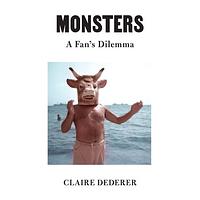Take a photo of a barcode or cover
DNF at 18%. I don’t know what I expected, but this is super boring. Could just be the audiobook narrator.
3.5 stars
An essential, thought provoking discussion on whether fans may- guilt free- enjoy the art of a corrupt or evil artist.
The first half of this book was powerful. A philosophical query on what constitutes harm and the relationship between a “fan” and artist. The power dynamic and false intimacy of creators and art. The grief we feel as an audience for the personal sins of the creator because it breaks the personal tie we feel to the art in order to not feel like we are complicit or active in their sin. But isnt loving the art the same as all martyrs? The movement the value and purpose are collective while the person is idolized not for who they were but from what they did for the collective. Is the individual more important than their legacy? Is a legacy from the collective value or from the sins?
In a time when we have intimate access to our favorite creators, we know more about their sins which creates the moral dilemma of whether idolizing their creation is plausibly deniable or connects us to their culpability.
Then the second half of this book focuses on, what seemed like, a justification that we are all monsters. From a working mom, to someone missing the art of their favorite artist who they have ostracized. I kept waiting for the point…
Which, in the last 5 minutes of this audiobook, pleasantly read by the author herself, was conveniently this: our personal choice to enjoy corrupted art does not corrupt us as we cannot individually hinder or advance that artist’s evil.
Clearly there is significant argument to this theory. But, perhaps Claire undertook the impossible task of explaining the ripple effect of human nature.
An essential, thought provoking discussion on whether fans may- guilt free- enjoy the art of a corrupt or evil artist.
The first half of this book was powerful. A philosophical query on what constitutes harm and the relationship between a “fan” and artist. The power dynamic and false intimacy of creators and art. The grief we feel as an audience for the personal sins of the creator because it breaks the personal tie we feel to the art in order to not feel like we are complicit or active in their sin. But isnt loving the art the same as all martyrs? The movement the value and purpose are collective while the person is idolized not for who they were but from what they did for the collective. Is the individual more important than their legacy? Is a legacy from the collective value or from the sins?
In a time when we have intimate access to our favorite creators, we know more about their sins which creates the moral dilemma of whether idolizing their creation is plausibly deniable or connects us to their culpability.
Then the second half of this book focuses on, what seemed like, a justification that we are all monsters. From a working mom, to someone missing the art of their favorite artist who they have ostracized. I kept waiting for the point…
Which, in the last 5 minutes of this audiobook, pleasantly read by the author herself, was conveniently this: our personal choice to enjoy corrupted art does not corrupt us as we cannot individually hinder or advance that artist’s evil.
Clearly there is significant argument to this theory. But, perhaps Claire undertook the impossible task of explaining the ripple effect of human nature.
I read a review of this book months ago in the New York Times and instantly added it to my to-read list. As a high school art teacher I often use artists through out history to support a lesson, and I make it a point to briefly explain to my students if they have a sordid history so that they understand we're not celebrating the person, we're celebrating their work. Years ago I watched a video by art critic Sarah Green called "Love the Art, Hate the Artist" about separating your appreciation for an artist work from their less than desirable behavior as a human being, and the concept has always fascinated me.
Dederer's book explores "monsters" in all genres of art including film, music and fine art. She examines both male and female monsters, as well as monsters who do and don't have children. Through out the book she redefines what it takes to be considered a monster, and how that has changed over time.
I was so engaged by the concepts of this book that I began highlighting passages and statements that resonated with me. This would have been an incredible resource to have as I worked toward earning my master's degree.
I highly recommend this book to anyone who is a part of or just deeply interested in the art world, anyone who has a particular interest in feminism in art, cancel culture, and anyone who enjoys philosophy.
Dederer's book explores "monsters" in all genres of art including film, music and fine art. She examines both male and female monsters, as well as monsters who do and don't have children. Through out the book she redefines what it takes to be considered a monster, and how that has changed over time.
I was so engaged by the concepts of this book that I began highlighting passages and statements that resonated with me. This would have been an incredible resource to have as I worked toward earning my master's degree.
I highly recommend this book to anyone who is a part of or just deeply interested in the art world, anyone who has a particular interest in feminism in art, cancel culture, and anyone who enjoys philosophy.
challenging
inspiring
reflective
medium-paced
reflective
reflective
medium-paced
challenging
dark
medium-paced
challenging
informative
reflective
slow-paced
Interesting book which reads very academic at times. The author in the middle delves into a lot of art history and assumed you’re aware of the context and history of some of the figures in the book.
Surprising to see the book develop into comments on motherhood, and authors own journey with alcohol. Ultimately I think this part could’ve been expanded (and the middle shortened) to create more of a narrative non fiction/memoir style book rather than one which read like a thesis.
Good and interesting ideas though, and a few sections which really made me stop and think!
Surprising to see the book develop into comments on motherhood, and authors own journey with alcohol. Ultimately I think this part could’ve been expanded (and the middle shortened) to create more of a narrative non fiction/memoir style book rather than one which read like a thesis.
Good and interesting ideas though, and a few sections which really made me stop and think!
dark
inspiring
reflective
fast-paced




